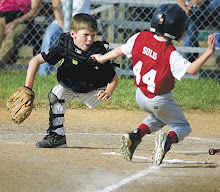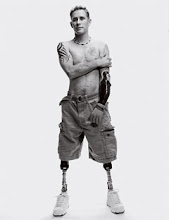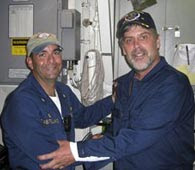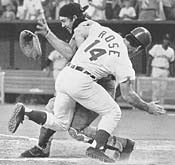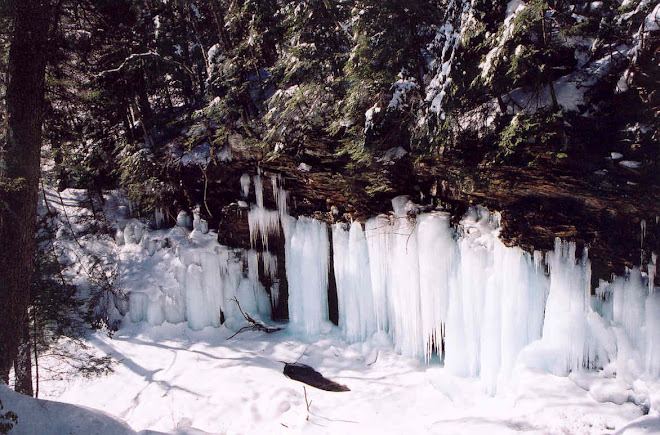September 27 – Ken Burns’ National Parks: America’s Best Idea series begins on PBS. It is 6 nights long. Based on what he did with baseball and its history (such as that of Jackie Robinson who you can read about in our hero assignment) and the Civil War, this will be incredible. http://www.pbs.org/nationalparks/ I have always said that my intent as a teacher is as much to teach you about what is in the college world as what is in the America that expands around you. The best (non-academic) decision that I ever made while I was a student was to drive across America. Here, I saw places that truly amazed me (multiple times). I hope that you will someday do the same. Hopefully, this series encourages you to do that.
September 29: We will discuss plagiarism and then we will discuss writing style. Plagiarism is when you take material that is not yours and use it as if it was yours while not giving proper credit to the original author. This can cause major problems, and thus, we go into detail with it. Writing style is how you express yourself and use your voice to write efficiently in academic ways.
October 1: Boy, time is flying! We’re already into the 2nd full month of classes. We go over first paragraph rules and then we do the National Parks Outline assignment. Once again, I am the only person that I know that owns this particular video. If you don’t attend class, it will be in the library for in building use only. This assignment must be completed IN CLASS by the following Tuesday to get the points for the assignment.
October 6: We will go over the Making Statistics Say Something PowerPoint. Then, you will have to have the JACKIE ROBINSON article finished by today.
This is the first part of the writing portfolio. You will have notes written on this, and you will have a TYPED first paragraph, and an outline. I will not accept the assignment for points if you have handwritten this (all assignments for in class check MUST BE TYPED SO THAT I KNOW THAT YOU PUT THE EXTRA EFFORT INTO THE ASSIGNMENT AND SO THAT I CAN READ THEM). I will also show you how to cite the article for a works cited page.
October 8: Any first paragraph not gone over in class on Tuesday will be done today. The final essay will be due IN CLASS on Tuesday.
October 13+15 – pick any one of my acceptable heroism articles and do the same for this. We will review that class and the next class. You will have TYPED notes, an outline, a first paragraph, and a works cited entry. The essay is due IN CLASS the following Tuesday. As will happen with any of these double classes, if we finish our paragraph checks early, we will work on grammar.
October 20 - pick any one of my acceptable heroism articles and do the same for this. We will review that class and the next class. You will have TYPED notes, an outline, a first paragraph, and a works cited entry. The essay is due IN CLASS the following Tuesday.
October 22 – The David Sedaris article midterm. As long as you wouldn’t fail, you get the points for passing. While this is not the final determination of passing or failing this class, this is a solid indicator of where you stand. It is given today so that you know where you would be with regards to deciding to withdraw or stay in class. Please note that withdrawing may prevent an F, but it may affect your financial aid. Always see the good folks in Berks 107 before acting on something that could create a bill for you. Always see your teacher before deciding that you can’t do this class anymore. You may be surprised to find that your teacher sees a light at the end of the tunnel!
October 27+29 – Prior to class on the 27th, I will be available for discussions regarding what your grade is so that you can decide whether to stay in class or to take a W. I will advise you honestly, but I won’t tell you what to do. Only you can do that. I will tell you what you can expect based on your progress up until this point. THEN, pick any one of my acceptable heroism articles and do the same for this. We will review that class and the next class. You will have TYPED notes, an outline, a first paragraph, and a works cited entry. The essay is due the following Tuesday IN CLASS.
October 28 – the World Series begins. Chances are that if you follow baseball, you have a pretty good chance that 1 of the teams that gets in will be a home team (Phillies, Red Sox, and / or Yankees). If you’re like me and your team is in the running, you’ll want to watch the games. While games are starting earlier this year, you’ll need to get your work done ahead of time. Derek Jeter, Cole Hamels, and David Ortiz don’t have essays and work due throughout the playoffs; you do. Please, don’t let the events of fall stand in the way of your completing this class.
November 3+5 - pick 1 final acceptable heroism article and do the same for this. We will review that class and the next class. You will have TYPED notes, an outline, a first paragraph, and a works cited entry. The essay is due the following Tuesday IN CLASS.
November 10 – Pick an article that you really liked for a critical summary. While the first 5 essays were the author’s intent, this is your objective interpretation of his / her summary. We will guide you through this process starting today. We will also do the Cornell Method video today. This features the Ken Burns Civil War DVD, which belongs to the library. I will put it on reserve should you need it to complete an assignment that you missed. However, this assignment is due at the end of class (no later than the 12th if you were sick).
ALSO, today, Disney’s Up comes out on DVD. This is by far the best movie of the year. Check it out, but be sure to bring tissues because it will make you cry as well as uplift you with its greater meaning. http://www.amazon.com/Single-Disc-Widescreen-Edward-Asner/dp/B001KVZ6FW/ref=sr_1_1?ie=UTF8&s=dvd&qid=1251049423&sr=8-1
November 12 – We go over your first paragraphs, outlines, and notes (typed of course) for your essay that is due on Tuesday.
November 15 – 12-8 is your first Barnes and Nobles Day. Your essay is due IN CLASS Tuesday. If you don’t turn this in, it must be to me by Monday November 23rd. If you don’t turn it in to me personally by that day, you can no longer pass the class. Please, do not let this happen to you.
November 17 - Library visitation day, which is mandatory by division standards, will happen today. We will discuss the initial requirements for the final essay of this class, which is a research-enhanced critical essay.
November 19 – We begin to discuss MLA. We break it into bite size parts, but we will continue the discussion from Tuesday and give you something to go into vacation with.
December 1+3 – More MLA refreshers and research tips. You get to clear up anything that you’re not sure about.
December 1 - you will need a typed outline, first paragraph, and notes for your 3rd essay. We will go over all of this in between the discussions on MLA.
December 6 – 10-9 is your final Barnes and Nobles Day. Your essay is due Tuesday IN CLASS. If you don’t turn this in, it must be to me IN-CLASS by Thursday December 10th. If you don’t turn it in to me personally by that day, you can no longer pass the class. Please, do not let this happen to you. This is the last day to hand in any journals.
December 8 – This day is an in-class day to ask me questions for the final and / or to work on the Mywritinglab assignment.
December 10 - This is the last day to finish the Mywritinglab assignment. We will talk about COM121 and the future of English for you. We will also do the Longwood Gardens Descriptive Writing Assignment to boost your word use skills. I thank you for working hard and
Your Final Exam is either Tuesday December 15th or Thursday December 17th. It is 1 class only, and by division standards, it is pass or fail. You will have your essay returned to you at this point. Students who can’t pass this class due to their final essay, journals, or Mywritinglab score will be told prior to the start of the exam. Students who do not pass the final will be given a C- if they were passing prior to the exam. Students that were not at the 73% grade prior to the exam will have a D or F for the term. Also, the final is chosen and mandated by the division. Your teacher does not choose this topic.
Monday, September 28, 2009
Thursday, September 17, 2009
Ralston Scenarios
In light of the need to finish up grammar today, we'll move back to Aron Ralston for Tuesday AFTER WE GET A LITTLE MORE PROPER SENTENCE STRUCTURE UNDER OUR BELTS.
In the meantime, here is an example of a good 5-paragraph author's intent.
Throughout the history of television and entertainment, producers have green-lighted shows to tell people about stories of survival in harsh situations. While some of these programs have romanticized the person who overcame the odds, other stories have focused on how the person in question was forced to confront a more negative scenario in being able to escape his predicament. One of these adventure tales, the story of Aron Ralston, focuses on a young man who loses his arm after being trapped by a boulder in a remote slot canyon in Utah. It is this loss and the situations that lead up to Ralston’s predicament that Tom Brokaw, the producer of the NBC News special, focuses on while he leads his viewers into a story of how not to go on an adventure.
First and foremost, Brokaw asks Ralston why he goes off by himself. While Ralston gives a solid reasoning that he wants to be alone and undisturbed with his thoughts, there is still a sense that he should have had a companion with him. Had he been with this person, Brokaw reasons that Ralston could have had someone to go for help to get him out of his dilemma. In this, Brokaw shows the reader that he should never enter into something that he can’t get himself out of.
Despite this, there are times that adventurers will go places alone. This happens because people don’t always have companions to enter into their adventures with, and other times, people just want to be alone. To this, Brokaw keeps repeating about how Ralston told nobody where he was going. In this, Ralston violates a law of traveling in the outdoors, which is to at least give potential rescuers a place to begin their search if the hiker ends up missing. As a result, Brokaw stresses to his viewers a need to be responsible in the harsh outdoors.
In addition to this, there is a focus on traveling in the backcountry with the appropriate amount of gear. Ralston’s cheap knife, lack of food, water, and clothing were just a few examples that proved that he wasn’t ready for the what ifs of the remote desert backcountry. As a result of this, he is forced to make due and suffer conditions that he could have prevented had he had warmer clothing, more water, and additional food. To this, Brokaw seems to be restating the Boy Scout motto of “be prepared” to all of the would be adventurers in the world.
While Ralston’s story ends with a spiritual rebirth, Brokaw stays focused to the what could have been and the potential for death that might have been. His vision of Ralston’s disfigurement as a catastrophe that could have been averted is just as powerful as the heroic nature of Ralston choosing life when he could have succumbed to his own destruction. As a result, the viewer truly sees this video as a warning of what could be if he does the same dumb things that Ralston, a man who should have known better, did.
In the meantime, here is an example of a good 5-paragraph author's intent.
Throughout the history of television and entertainment, producers have green-lighted shows to tell people about stories of survival in harsh situations. While some of these programs have romanticized the person who overcame the odds, other stories have focused on how the person in question was forced to confront a more negative scenario in being able to escape his predicament. One of these adventure tales, the story of Aron Ralston, focuses on a young man who loses his arm after being trapped by a boulder in a remote slot canyon in Utah. It is this loss and the situations that lead up to Ralston’s predicament that Tom Brokaw, the producer of the NBC News special, focuses on while he leads his viewers into a story of how not to go on an adventure.
First and foremost, Brokaw asks Ralston why he goes off by himself. While Ralston gives a solid reasoning that he wants to be alone and undisturbed with his thoughts, there is still a sense that he should have had a companion with him. Had he been with this person, Brokaw reasons that Ralston could have had someone to go for help to get him out of his dilemma. In this, Brokaw shows the reader that he should never enter into something that he can’t get himself out of.
Despite this, there are times that adventurers will go places alone. This happens because people don’t always have companions to enter into their adventures with, and other times, people just want to be alone. To this, Brokaw keeps repeating about how Ralston told nobody where he was going. In this, Ralston violates a law of traveling in the outdoors, which is to at least give potential rescuers a place to begin their search if the hiker ends up missing. As a result, Brokaw stresses to his viewers a need to be responsible in the harsh outdoors.
In addition to this, there is a focus on traveling in the backcountry with the appropriate amount of gear. Ralston’s cheap knife, lack of food, water, and clothing were just a few examples that proved that he wasn’t ready for the what ifs of the remote desert backcountry. As a result of this, he is forced to make due and suffer conditions that he could have prevented had he had warmer clothing, more water, and additional food. To this, Brokaw seems to be restating the Boy Scout motto of “be prepared” to all of the would be adventurers in the world.
While Ralston’s story ends with a spiritual rebirth, Brokaw stays focused to the what could have been and the potential for death that might have been. His vision of Ralston’s disfigurement as a catastrophe that could have been averted is just as powerful as the heroic nature of Ralston choosing life when he could have succumbed to his own destruction. As a result, the viewer truly sees this video as a warning of what could be if he does the same dumb things that Ralston, a man who should have known better, did.
Tuesday, September 8, 2009
Aron Ralston Assignment
As I said, one of the things that I encourage students to do is to travel and see the world. How many national parks have you been to? How many can you name? You really should check out the US National Park system. There is so much that is out there to see. To sit in your comfy eastern PA houses and not see it... anathema.
We will be doing the Aron Ralston video and in class essay writing experience. As I don't lend out my videos and I don't know any other video store that is cool enough to have this video, YOU WILL NEED TO GO TO THE LIBRARY TO WATCH THE VIDEO TO GET THE POINTS IF YOU ARE NOT IN CLASS. This is a 50 point assignment that includes notes, WRITING AN IN-CLASS rough draft, and correcting it in class. It does not need to be perfect because it is for peer editing, but it needs to be done - all 5 paragraphs. If you go through all of the motions and give it your college best, you will get all of the points, if not... then...
 You can read about his amazing life here and here.
You can read about his amazing life here and here.
You can read about the video of his life's major changing event here.
I can only completely and totally recommend that you buy the book about his adventure that he wrote after the events in Blue John Canyon.
You can see pictures by the guys at You Can Never Have Too Much Fleece here.
I only wish I was that great of a photographer and had that much time to adventure to really cool places. All the same, my pictures are here and my videos are here.
This is about all we really have time for...
well, in there, we are going to talk about
First paragraphs
How to write essays well (and poorly).
I'll have sample essays of both varieties.
+++++++++++++++++++++++++++++++++++++++
 ARON RALSTON PROJECT (this is in-class)
ARON RALSTON PROJECT (this is in-class)
We will be doing the Aron Ralston video and in class essay writing experience. As I don't lend out my videos and I don't know any other video store that is cool enough to have this video, YOU WILL NEED TO GO TO THE LIBRARY TO WATCH THE VIDEO TO GET THE POINTS IF YOU ARE NOT IN CLASS. This is a 50 point assignment that includes notes, WRITING AN IN-CLASS rough draft, and correcting it in class. It does not need to be perfect because it is for peer editing, but it needs to be done - all 5 paragraphs. If you go through all of the motions and give it your college best, you will get all of the points, if not... then...
 You can read about his amazing life here and here.
You can read about his amazing life here and here.You can read about the video of his life's major changing event here.
I can only completely and totally recommend that you buy the book about his adventure that he wrote after the events in Blue John Canyon.
You can see pictures by the guys at You Can Never Have Too Much Fleece here.
I only wish I was that great of a photographer and had that much time to adventure to really cool places. All the same, my pictures are here and my videos are here.
This is about all we really have time for...
well, in there, we are going to talk about
First paragraphs
How to write essays well (and poorly).
I'll have sample essays of both varieties.
+++++++++++++++++++++++++++++++++++++++
 ARON RALSTON PROJECT (this is in-class)
ARON RALSTON PROJECT (this is in-class)2+ PAGES OF NOTES
1 8-paragraph essay (should not be perfect SINCE:
we will correct it in class as a peer review assignment.
If you do all of this correctly, then I will give you 50 points.
NOTES
Blue John Canyon – a slot canyon in Canyonlands National Park.
Issues that Aron faced during his 6 day ordeal.
1. Starvation (2 burritos)
2. Dehydration (22oz of water)
3. Decompensatory Shock
4. Trapped feeling
5. Blood loss
6. Weight loss (over 40 pounds)
7. 8 mile hike across exposed desert in excessive heat (the distance from RACC to the other side of Sinking Spring OR back and forth to the Fairgrounds Mall)
8. Hypothermia (cold temperatures at night)
9. Fear of death / thoughts of suicide
10. Lack of sleep
11. Hallucinations
12. Anger at self for making a foolish mistake
13. Worry about how his predicament would affect his family
14. Decomposition gasses poisoning him
15. The decision and actions involved with cutting off his own arm
16. Weakened state
Blue John Canyon – a slot canyon in Canyonlands National Park.
Issues that Aron faced during his 6 day ordeal.
1. Starvation (2 burritos)
2. Dehydration (22oz of water)
3. Decompensatory Shock
4. Trapped feeling
5. Blood loss
6. Weight loss (over 40 pounds)
7. 8 mile hike across exposed desert in excessive heat (the distance from RACC to the other side of Sinking Spring OR back and forth to the Fairgrounds Mall)
8. Hypothermia (cold temperatures at night)
9. Fear of death / thoughts of suicide
10. Lack of sleep
11. Hallucinations
12. Anger at self for making a foolish mistake
13. Worry about how his predicament would affect his family
14. Decomposition gasses poisoning him
15. The decision and actions involved with cutting off his own arm
16. Weakened state
Friday, September 4, 2009
Just so you know,...
I am out of town until Monday night.
If you have questions, I will answer them then.
Make sure you get signed in to www.mywritinglab.com
Start working on it as well.
We'll talk about this on Thursday.
Tuesday is the Aron Ralston in class video assignment day 1. Please be there.
See Angel online for handouts.
Have a great 3 day weekend!
If you have questions, I will answer them then.
Make sure you get signed in to www.mywritinglab.com
Start working on it as well.
We'll talk about this on Thursday.
Tuesday is the Aron Ralston in class video assignment day 1. Please be there.
See Angel online for handouts.
Have a great 3 day weekend!
Tuesday, September 1, 2009
Into the Wild Journals - Optional - still 1 page EACH
Potential journals for writers (based on Into the Wild video from in class)
1. How do you get attached to your subject?
2. How do you get close to the character that you are playing?
3. How do you become dis-attached from the reality of the character that has now been turned to “art” by someone else and allow him / her to be portrayed in a movie?
4. How do you channel ideas into a powerful personal connection?
5. Can you write about something without experiencing that something?
6. Must a writer write the absolute truth of a real incident or can he / she take artistic liberty to create something slightly different?
7. What duty do real “characters” have to the creative process?
8. Where do we find inspiration and guidance to write?
9. How can an artist / musician feed off of an incident to create art?
10. Are personal connections important to writing about real “characters?”
11. When a book is turned into a movie, what is gained and what is lost?
12. What traits does one need to truly be able to research a topic fairly and objectively?
ALSO - Would you take a $200,000 a year job if it meant being on call 24/7 (to include vacation)? What's more important - family moments or financially supporting a family in unlimited comfort?
1. How do you get attached to your subject?
2. How do you get close to the character that you are playing?
3. How do you become dis-attached from the reality of the character that has now been turned to “art” by someone else and allow him / her to be portrayed in a movie?
4. How do you channel ideas into a powerful personal connection?
5. Can you write about something without experiencing that something?
6. Must a writer write the absolute truth of a real incident or can he / she take artistic liberty to create something slightly different?
7. What duty do real “characters” have to the creative process?
8. Where do we find inspiration and guidance to write?
9. How can an artist / musician feed off of an incident to create art?
10. Are personal connections important to writing about real “characters?”
11. When a book is turned into a movie, what is gained and what is lost?
12. What traits does one need to truly be able to research a topic fairly and objectively?
ALSO - Would you take a $200,000 a year job if it meant being on call 24/7 (to include vacation)? What's more important - family moments or financially supporting a family in unlimited comfort?
Subscribe to:
Comments (Atom)

